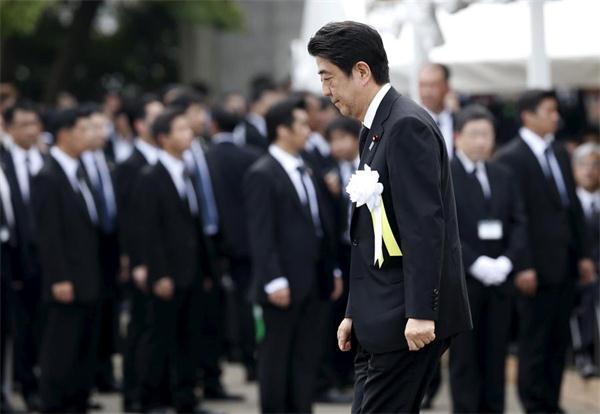Japan under pressure to express true remorse for past aggression
(China Daily) Updated: 2015-08-11 08:02
 |
|
Japan's Prime Minister Shinzo Abe attends a ceremony commemorating the 70th anniversary of the 1945 atomic bombing of the city, at Nagasaki's Peace Park in Nagasaki, western Japan, August 9, 2015. [Photo/Agencies] |
A draft of Japanese prime minister Shinzo Abe's statement
to mark the 70th anniversary of the end of World War II includes the words "apology" and "aggression", Japan's public broadcaster NHK reported on Monday. The words appeared in a landmark statement by then prime minister Tomiichi Murayama in 1995, who expressed "deep remorse" and rendered a "heartfelt apology" for Japan's wartime atrocities. Comments:If Japan really wants to turn into "a country that is completely different from what it was in the first half of the 20th century", it is advisable that Tokyo acknowledge its mistakes of the past and reconfirm its commitment to regional peace and stability. Abe's upcoming statement offers a good opportunity for him to do this.
Xinhua News Agency, Aug 7
Whether Japan chooses the path of pacifism or relives the country's militarist past is not only about China, but also about Asia and the world. As the most unrepentant of the countries which launched their aggression on the world during WWII, Japan seems determined to do the latter as Abe is muscling through his new security bills. The "insistent" public concerns over the so-called Abe Statement show that people want to know to what extent Abe will alter Murayama's words.
Qian Feng, vice-president of Asia Times, Aug 10
Abe is trying hard to distract public attention by making his statement one day ahead of Aug 15, the day Japan surrendered 70 years ago. He is also trying to make his speech a personal one that has little to do with his country. Japan's relationship with its neighboring countries will be significantly undermined if Abe insists on withholding an apology for the country's wartime aggression. Instead of paying lip service, Abe should genuinely reflect on what his country did in Asia before and during WWII, and make Japan a true pacifist nation.
People's Daily Overseas Edition, Aug 10
While it appears that Abe is considering the inclusion of such key words ... in an attempt to pre-empt criticism both at home and from overseas, it seems possible that he will significantly alter the context in which these words are used from the way they are used in the Murayama Statement. He might thus try to satisfy both his revisionist supporters and his critics. However, this would simply anger both.
Koichi Nakano, a political science professor at Sophia University, Aug 10











